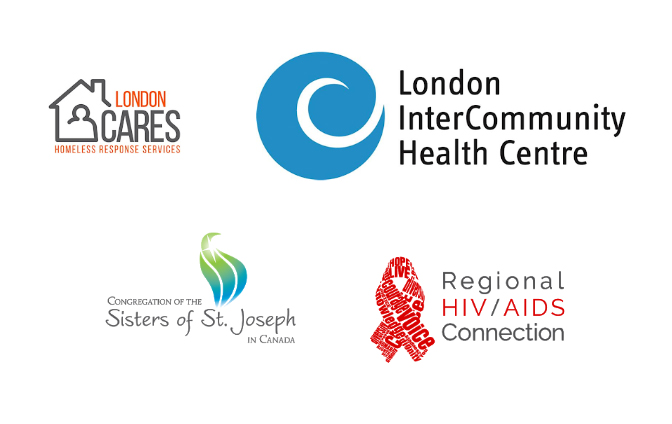Four local support agencies say they’re partnering together to make it easier for Londoners to access the services they need as the city faces growing challenges surrounding homelessness, and poverty — long-term issues that have been exacerbated by the coronavirus pandemic.

The London InterCommunity Health Centre, London Cares, Regional HIV/AIDS Connection, and Sisters of St. Joseph Hospitality Centre say their new Community Health Hub, bolstered by a $323,900 grant from the London Community Foundation, will allow residents to visit one location to access the agencies’ services rather than having to travel around the city.
The location of the new hub, expected to be about 33,000 square feet, has not been finalized yet, but it’s expected to be located between downtown and the Old East Village.
Anne Armstrong, London Cares’ executive director, says when it opens, it will provide a welcoming space for people who are often isolated and stigmatized in the community.
“A lot of services are open regular business hours, (and) certainly for the folks that we deal with at London Cares who are dealing with chronic homelessness and (are) often on the streets, they don’t run on us on a time clock,” Armstrong said.
“Booking an appointment and then having to get across town is quite challenging. Our goal is to try and better meet their needs and meet them where they’re at.”
- Trudeau tight-lipped on potential U.S. TikTok ban as key bill passes
- Canadian man dies during Texas Ironman event. His widow wants answers as to why
- Hundreds mourn 16-year-old Halifax homicide victim: ‘The youth are feeling it’
- On the ‘frontline’: Toronto-area residents hiring security firms to fight auto theft
Those involved say they hope the hub will become a permanent fixture, and Armstrong says the intent is to have the services of all four agencies be combined into an integrated service delivery model.
“I know for the (Sisters of St. Joseph Hospitality Centre) and for London Cares, our core services will be located within the hub, and then we’ll be bringing other services in through other partnerships,” she said.
Word of the new hub comes as the region continues to grapple with the economic impacts brought on by the coronavirus pandemic, including closed businesses and increased unemployment — 8.9 per cent as of September.
Though the current jobless rate is a drop from the 12.6-per cent peak recorded in June, city officials say the local economy is still 7,700 jobs behind the pre-pandemic shutdown total.
According to Statistics Canada, it’s estimated that the number of active businesses in the London Census Metropolitan Area, which includes Stathroy-Caradoc and St. Thomas, fell from 9,358 in February to 8,232 in June, the latest figures available.
Local agencies, such as the London Food Bank, have seen higher demand from the community as a result.
The food bank alone has seen visits from local families increase as much as 10 per cent every month over the last few months.
The city has been renting dozens of hotel and motel rooms in the city for homeless Londoners and others who are vulnerable and at high-risk of infection, with spaces at the city’s emergency shelters reduced to facilitate physical distancing.
The city is set to continue renting up to 140 rooms until the end of March, a cost which will be funded entirely by Queen’s Park and Ottawa.
A staff report put before a city committee early this month reported that 26 households were able to move from a hotel to housing since the city began procuring the rooms, however the same report noted that officials had seen “no evidence to suggest that there has been reduced market pressure for individuals and families experiencing housing instability.”
“Reduced employment opportunities and work hours has impacted households’ ability to afford rent, limited unit turnover has decreased the amount of vacant units available for those searching for housing and those living unsheltered are struggling to find safe accommodations,” the report said.
Some 5,000 Londoners are currently on a waiting list for rent-geared-to-income housing, while 13 per cent of Londoners are living in housing that is inadequate, unsuitable, or unaffordable, according to a report released earlier this year by the London Community Foundation.
The same report found that 18 per cent of Londoners, around 72,000 people, live at or below the poverty line, with Indigenous and newcomer communities numbering at 36 and 55 per cent below the poverty line, respectively.
— With files from Jacquelyn LeBel









Comments